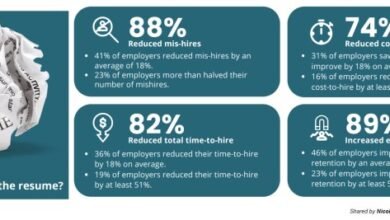
By | Anisha Chawla
In today’s challenging and constantly evolving laws related to remote work and international global recruitment, employers face a multitude of legal and regulatory obligations that must be met to maintain compliance and minimize risks. These requirements span from employment laws and regulations to industry-specific standards and international agreements, creating a complex legal environment that offers both challenges and opportunities for businesses aiming to operate with integrity and accountability. In this article, we’ll delve into essential factors for employers to consider when dealing with legal and regulatory frameworks and offer practical insights to assist them in remaining compliant and protecting their businesses.
Understanding Legal Obligations
Employers are obligated by law to adhere to a range of regulations concerning employment, workplace safety, data privacy, discrimination, and other areas. It’s crucial for employers to acquaint themselves with relevant federal, state, and local laws and regulations applicable to their industry and location. In North America, this includes laws such as the Fair Labor Standards Act (FLSA), Title VII of the Civil Rights Act, the Occupational Safety and Health Act (OSHA), and the Americans with Disabilities Act (ADA). By understanding their legal obligations, employers can ensure compliance and avoid costly penalties and litigation.
Implementing Effective Policies and Procedures
To mitigate legal risks and promote a safe and inclusive workplace environment, employers should establish clear and comprehensive policies and procedures. This includes policies addressing equal employment opportunity, harassment and discrimination prevention, workplace safety, data protection, and employee benefits. Moreover, employers should ensure employees are aware of these policies, offer training and resources for compliance, and regularly review and update policies to reflect changes in laws and regulations. By implementing effective policies and procedures, employers can create a culture of compliance and reduce the likelihood of legal disputes, resulting from global talent acquisition initiatives.
Ensuring Fair Employment Practices
Employers must adhere to fair employment practices and avoid discriminatory practices in all aspects of the employment relationship, including recruitment, hiring, promotion, compensation, and termination. This includes ensuring equal opportunities for all employees and applicants regardless of race, color, religion, sex, national origin, age, disability, or other protected characteristics. Employers should also accommodate employees with disabilities and ensure a workplace free from harassment. By promoting a culture of diversity, inclusion, and equity, employers can attract top talent, enhance employee morale, and mitigate legal risks associated with discrimination claims.
Protecting Employee Data Privacy
In today’s digital age, employers must prioritize the protection of employee data privacy and comply with data protection laws and regulations, such as the General Data Protection Regulation (GDPR) in the European Union and the California Consumer Privacy Act (CCPA) in the United States. This includes obtaining consent for data collection, implementing security measures to safeguard sensitive information, and providing transparency and accountability in data processing practices. Employers should also establish protocols for responding to data breaches to minimize risks and ensure prompt and appropriate action. By prioritizing employee data privacy, employers can build trust and confidence among employees and stakeholders while reducing legal and reputational risks linked to data breaches.
Staying Informed and Adapting to Change
The legal and regulatory landscape is constantly evolving, requiring employers to stay informed about changes in laws, regulations, and industry standards that may impact their business operations. Employers should regularly monitor legal developments, consult with legal experts, and take part in ongoing education and training to stay informed about any changes in the legal landscape. Additionally, employers should proactively assess their compliance efforts, conduct regular audits and assessments, and adjust their policies and practices as needed to ensure ongoing compliance with legal and regulatory requirements.
Ultimately, navigating legal and regulatory frameworks is a critical aspect of operating a successful and responsible business. By understanding their legal obligations, implementing effective policies and procedures, ensuring fair employment practices, protecting employee data privacy, and staying informed about changes and developments in the legal landscape, employers can mitigate risks, ensure compliance, and safeguard their businesses. With a proactive and strategic approach to navigating legal and regulatory challenges, employers can protect their reputation, build trust among employees and stakeholders, and position themselves for long-term success in a complex and dynamic business environment.






